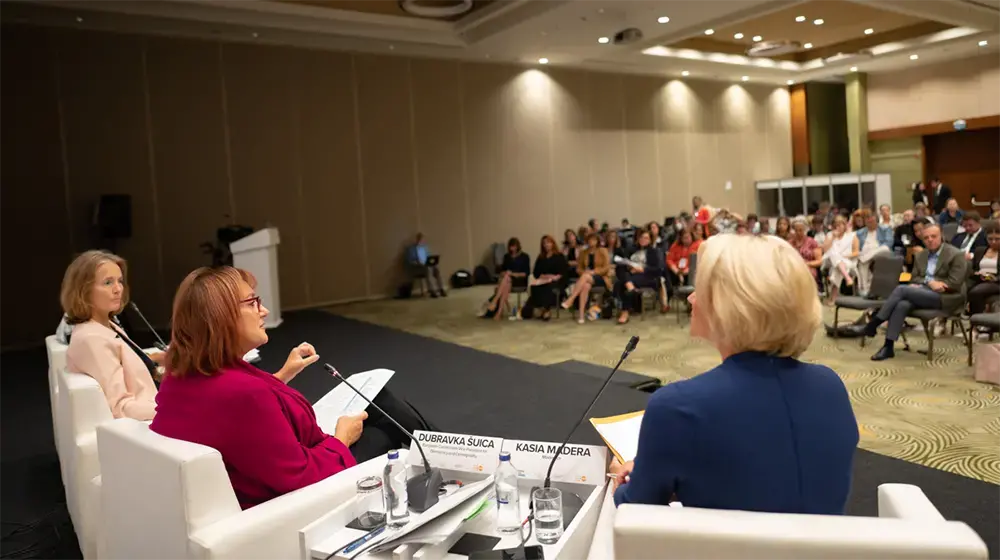SOFIA, 2 December 2021 – A Decade of Demographic Resilience was launched today at the Ministerial Conference on “Shaping Europe’s Demographic Future”, organized by the Government of Bulgaria and UNFPA, the United Nations Population Fund, in cooperation with Population Europe in Sofia, Bulgaria.
“The Decade of Demographic Resilience will galvanize action in the region for enabling countries to thrive in a world of rapid demographic change,” said UNFPA Regional Director Alanna Armitage.
“This will help countries anticipate and understand the way populations are changing, and develop responses that mitigate potentially negative effects and fully harness the opportunities that also always come with demographic change.”
The Decade is grounded in the understanding that demographic trends are influenced by a complex and interconnected set of social, cultural, economic, environmental and political factors and therefore require comprehensive policy responses that are based on evidence and put people and their rights and choices first.
In focusing attention and action on the interplay between demographic change and development, the Decade contributes to achieving Agenda 2030 and the Sustainable Development Goals in Europe and Central Asia.
The Sofia Alliance, a new country-led policy and practice community facilitated by UNFPA, contributes to achieving the goals of the Decade. It offers interested countries a platform to receive support, and share experiences, in addressing challenges and harnessing opportunities related to demographic change.
During the Decade, a bi-annual Demographic Resilience Forum will take stock of progress, sustain political support, and showcase successful new initiatives to address demographic change.
Delegates from over 50 countries gathered in Sofia, and online, this week to discuss solutions for addressing demographic shifts related to population ageing, low fertility, and migration.




